Most people don’t plan to become caregivers. It happens gradually when a parent needs more help, or suddenly after a medical emergency. Many family caregivers feel unprepared for the responsibilities that come with caring for someone with complex needs.
Effective caregiving relies on a few key caregiver skills: effective communication, emotional support, active listening, time management, problem-solving skills, physical strength, self care, patience, adaptability, and basic medical knowledge. These caregiving skills determine how well both the caregiver and care recipient handle daily challenges and maintain quality of life.
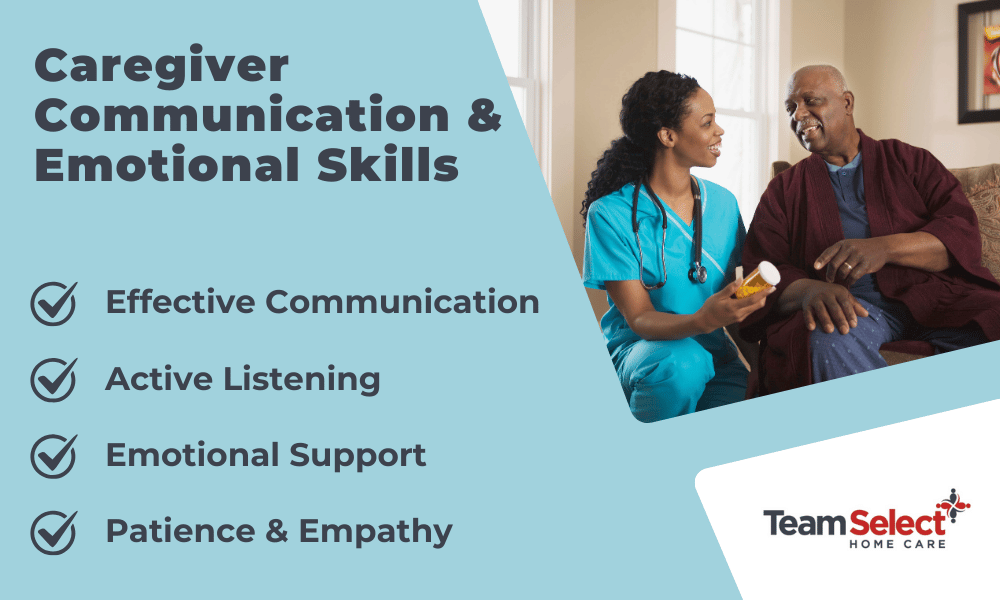
Communication and Emotional Skills
Strong communication forms the foundation of quality home care. These interpersonal skills help build trust and create positive experiences for everyone involved.
Effective Communication
Clear, compassionate dialogue makes every caregiving interaction smoother. When family caregivers master communication skills, they can better advocate for their loved ones with healthcare professionals and medical professionals. This becomes especially important for families of children with developmental disabilities or neurodevelopmental disorders, where specific communication approaches may be needed.
Good communication also helps when coordinating care with other family members. Everyone stays informed about medication schedules, doctor appointments, and changes in condition when information flows clearly between all parties.
Active Listening and Emotional Support
Active listening goes beyond hearing words. It involves paying attention to emotions, body language, and unspoken needs. This skill helps informal caregivers provide meaningful emotional support during difficult moments.
For caregivers of children with developmental disorders or developmental delay, active listening helps identify communication patterns and preferences. Understanding the bigger picture of emotional needs creates stronger connections and better care outcomes.
Building Patience and Empathy
Patience allows caregivers to respond calmly during challenging situations. Young children or adults with intellectual disability may need extra time to process information or complete tasks. Maintaining internal consistency in emotional responses helps create a stable, supportive environment.
Empathy helps family caregivers understand their loved one’s perspective. This understanding leads to more compassionate care and reduces frustration for both parties.
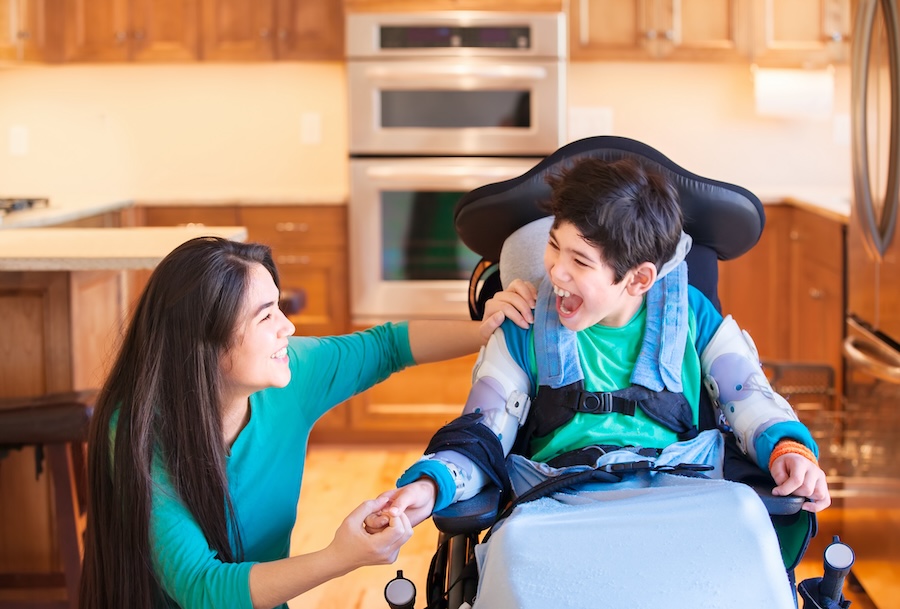
Practical and Physical Caregiving Skills
Beyond emotional support, caregivers need practical abilities to handle daily care tasks safely and efficiently.
Physical Strength and Safety Awareness
Physical strength matters for safe transfers, lifting, and assisting with mobility. In-home caregivers who maintain their physical fitness can provide better assistance while protecting themselves from injury.
Safety awareness includes:
- Proper body mechanics during transfers
- Fall prevention strategies
- Emergency response procedures
- Medication management protocols
Time Management and Organization
Successful caregivers balance multiple responsibilities while maintaining quality care. Time management skills help coordinate medical appointments, therapy sessions, and daily activities without feeling overwhelmed.
Effective organization includes:
- Creating daily and weekly schedules
- Preparing medications in advance
- Keeping important documents accessible
- Planning for emergencies
Problem-Solving Skills
Caregiving presents unexpected challenges that require creative solutions. Problem-solving skills help informal caregivers adapt when situations change or when standard approaches don’t work. Strong problem-solvers know when to seek help from healthcare providers or medical professionals. They recognize their limits and connect with appropriate resources when needed.

Specialized Skills and Professional Development
Advanced caregiving requires ongoing learning and specialized knowledge, including core competency modules, emergency preparedness & basic nursing skills, pediatric-specific training, certification through an approved provider. Team Select can help connect you with providers and free training.
Medical Knowledge and Intervention Techniques
Basic medical skills benefit every caregiver. Understanding vital signs, recognizing symptoms, and knowing when to call for help prevents medical emergencies from becoming crises.
Caregiver-mediated intervention techniques prove especially valuable for families of children with neurodevelopmental disorders. These evidence-based approaches help caregivers support development while managing challenging behaviors.
Training and Continuous Learning
Caregiver skills training provides structured learning opportunities. Training programs cover topics like:
- Safe transfer techniques
- Communication strategies for specific needs
- Stress management approaches
- Emergency response procedures
Many healthcare professionals recommend formal training, especially for caregivers managing complex medical conditions or developmental disabilities.
Self-Care and Mental Health
Self-care represents one of the most important caregiving skills. Caregivers who neglect their own mental health and physical well-being cannot provide optimal care for others.
Effective self-care includes:
- Regular exercise and healthy eating
- Adequate sleep and rest periods
- Social connections with other caregivers
- Professional support when needed
Managing caregiver burden through self care prevents burnout and maintains caregiving quality over time.

Finding the Right Support for Your Caregiving Journey
Developing these skills takes time, practice, and often professional guidance. Many family caregivers find that working with experienced in-home caregivers helps them learn while providing needed support. We offer help with these specialized programs:
-
- Arizona Family LHA Program: Empowers family members to become paid, licensed Health Aides, enabling loved ones to deliver expert-level care at home under Team Select’s clinical guidance.
- Colorado Family CNA Program: Trains and certifies family caregivers as CNAs (Certified Nursing Assistants) so they can safely and professionally care for their medically fragile loved ones in the comfort of home.
- Colorado IHSS: Through In-Home Support Services, eligible families can arrange for health-maintenance, personal care, and homemaker services at home—with trained caregivers who may include relatives.
- New Hampshire Family LNA Program: Allows family caregivers to become Licensed Nursing Assistants (LNAs) and provide skilled, paid caregiving tailored to the unique needs of medically complex children and adults.
- Pennsylvania Family HHA Program: Enables parents and relatives to earn certification and income as Home Health Aides (HHAs) while delivering personalized and skilled care for their medically fragile loved ones.
- Indiana Family HHA Program: Equips family members to become certified HHAs, offering professional training and support to serve as paid caregivers for medically complex children and adults.
- Florida Family AMFC: This initiative allows families to receive training and Medicaid reimbursement while caring for medically fragile loved ones at home
Team Select Home Care: Your Trusted Partner
Team Select is dedicated to improving lives by standing alongside families in need and empowering our clinical team to make a meaningful difference every day. Our specialized services range from long-term adult care, with skilled nursing, respite support, and tracheostomy management, to round-the-clock pediatric care for medically fragile children. We also provide personal care services, offering dependable assistance with everyday needs so families can feel confident and supported.
Our skilled clinical team creates customized care plans tailored to each family’s unique needs and medical situation. From the first assessment to ongoing care, Team Select delivers expert guidance and compassionate support to help families thrive at home.
The caregiving journey doesn’t have to be traveled alone. Professional support can help family caregivers master these important skills while ensuring their loved ones receive the best possible care. Contact Team Select Home Care today to learn more.

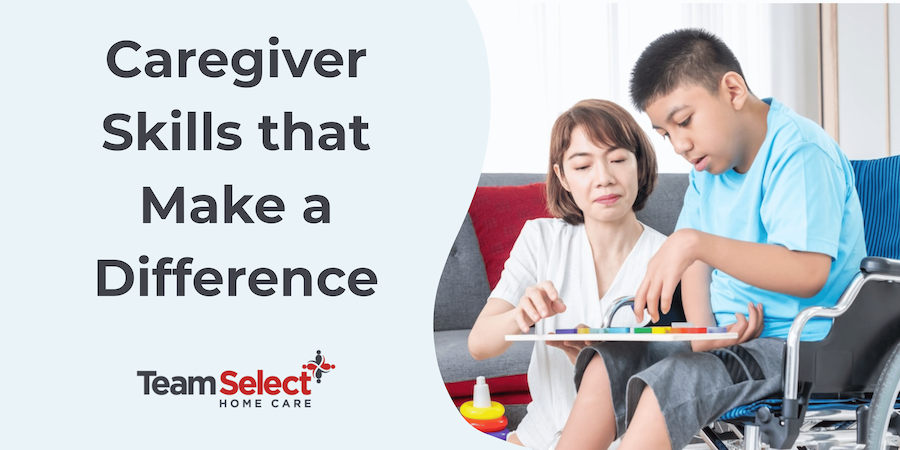
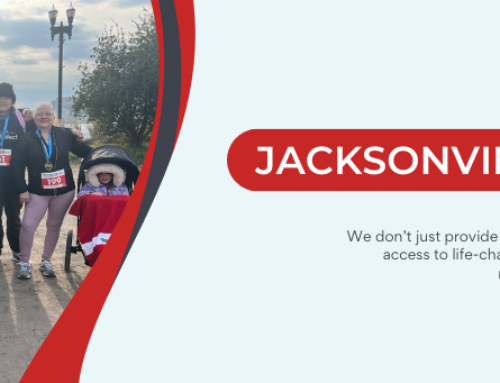
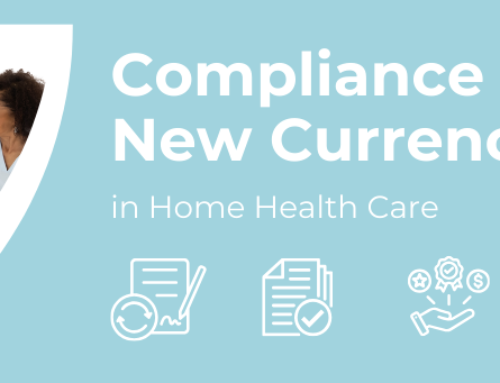
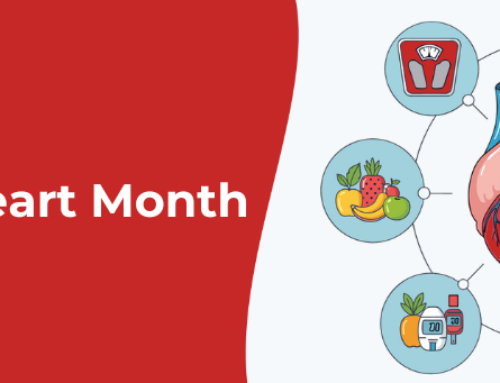
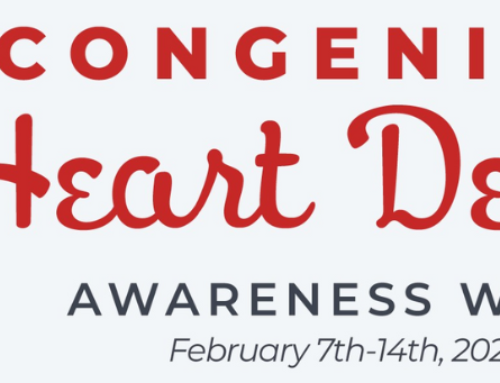
Leave A Comment